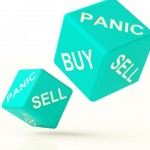 Advocates for the small investor may be getting their wish. New rules are being considered by the SEC that would require high frequency traders to register as broker-dealers, which would make them subject to additional supervision from Securities and Exchange Commission.
Advocates for the small investor may be getting their wish. New rules are being considered by the SEC that would require high frequency traders to register as broker-dealers, which would make them subject to additional supervision from Securities and Exchange Commission.
Who are these High-Frequency Traders?
High-Frequency traders use complex computer programs that takes massive amounts of information from press releases, web postings, news reports, etc., to produce computer issued buy and sell orders on every kind of imaginable position. Since the only real human element involved is the extensive computer programming required to produce such a system, buy and sell orders can be issued within seconds of the time information is released.
Why would High-Frequency Traders be a Problem?
 Some investors believe these systems increase market volatility since they react so quickly and have the potential of, if the computer deems it warranted, taking large and even controlling positions in a market within seconds. Other investors believe these same elements increase the risk a market may crash. Still others believe that should these programs become too effective the small investor will never be able to make money in the markets because by the time they get and analyze the same information the high-frequency traders have taken the profitable positions already.
Some investors believe these systems increase market volatility since they react so quickly and have the potential of, if the computer deems it warranted, taking large and even controlling positions in a market within seconds. Other investors believe these same elements increase the risk a market may crash. Still others believe that should these programs become too effective the small investor will never be able to make money in the markets because by the time they get and analyze the same information the high-frequency traders have taken the profitable positions already.
Other investors feel these concerns are not valid. They point out that every high-frequency trading program is set with a different set algorithms. They point out that two high-frequency traders will often end up on different sides of a position. Others point out that since these are private individuals or entities and they only buy and sell with their own money that it is nobody else’s business what they do as long as it is legal.
What Happens if High-Frequency Traders are Required to Register?
If High-Frequency Traders are forced to register as Broker Dealers, they would become subject to the Security and Exchange Commission’s regulations designed for those who trade other people’s moneys. Full disclosure and reporting would be only one of the things they would be required to do. In addition, they would become subject to the Financial Industry Regulatory Authority’s examination program, which would force them to make their books and records available to both the Securities and Exchange Commission and the Financial Industry Regulatory Authority.
Obviously, High-Frequency Traders would object to this. They guard their algorithms like the government guards the gold in Fort Knox. They are always tweaking their formulas to become better than every other High-Frequency Trader and any disclosure of what they buy and sell could help others to discover their secrets.
Definition is a Huge Issue
One of the biggest issues will come as a result of the fact that there is no accepted definition for high-frequency trading. One way would be to focus on the total number of trades in a year. Another would be to focus on the total number of securities a trader owns. No matter what method is chosen, people that don’t even use the computerized trading systems may be forced to open up their records as well.
Just the Hint of Possible Regulations has Already had an Impact
Even without an industry accepted definition of who is a high-frequency trader, some companies, fearing possible complications from even being associated with someone who might be one, have taken steps to distance themselves. For example, Berkshire Hathaway’s Business Wire has said it will no longer make its direct feeds of press releases available to high-frequency traders.
